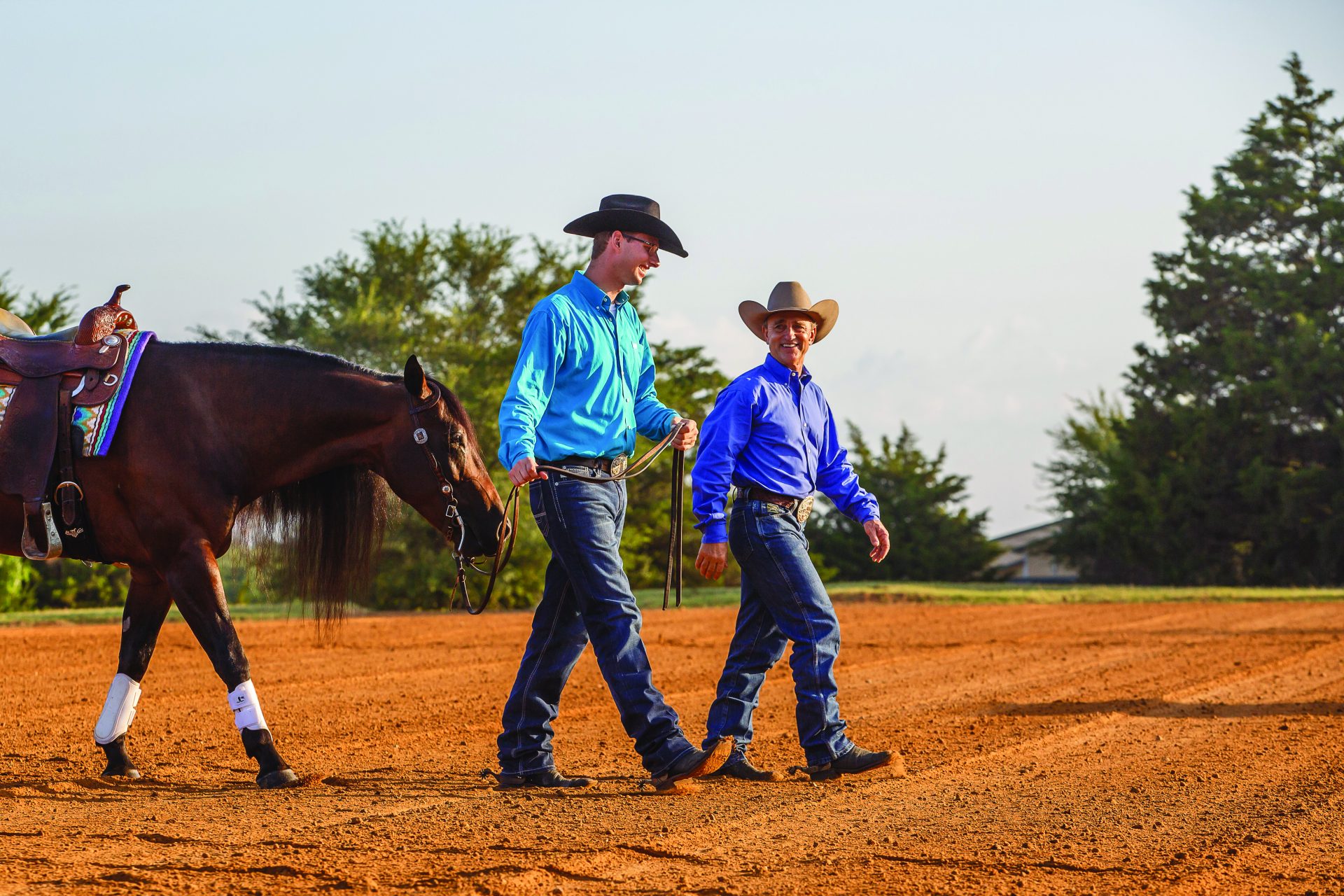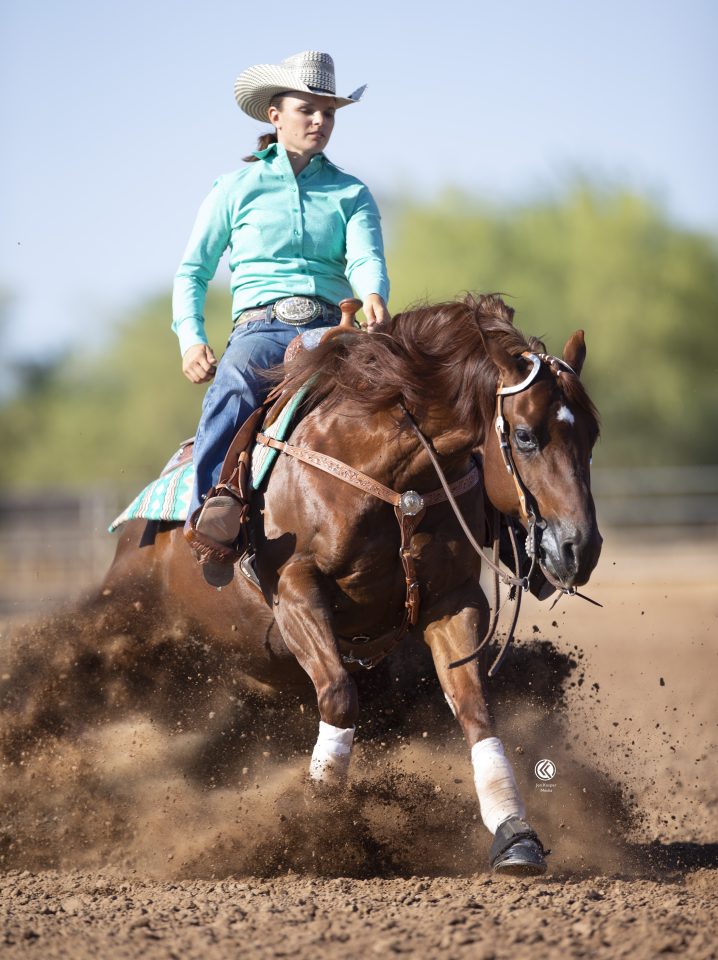When we help each other, we all succeed and improve our industry.
By Casey Hinton, With Jennifer Paulson

Mentorship and collaboration are key elements in any business, and we can benefit from them in our reining industry as well. You can see in professional sports where the most successful coaches are the ones who have learned from top coaches and continue to collaborate and further their expertise throughout their careers. They then mentor assistants and others who often go on to be as successful—or achieve even more success.
Both mentorship and collaboration play roles in my business. Here I’ll share how I use them and outline benefits that come from them.
Mentorship
Don’t limit your vision of mentorship to focus solely on educating your assistants to be better at training horses. Yes, that’s one part of it. But it encompasses many other opportunities, too. The non-riding qualities of the service business are just as important to be successful. That includes cleanliness, organization, and learning how to prioritize.
Teaching your assistants and interns to run their business should be a major component of your mentorship. I worked for Al Dunning for five years. His mentorship about how he runs his business is something that I rely on and continue to share to this day. You can teach your assistants and other trainers a lot just in how you treat your customers, too. The biggest thing to remember is that you have to put something into your assistants if you want to expect something back. Your investment in your assistants helps them work their way through the ranks, much like a professional baseball player would. They go from college teams to the minor leagues, learning as they go along by showing in weekend events and Category 1 shows. They then graduate to the major league and the aged events.
Mentor these up-and-comers using your age to your benefit. A lot of times, your vast experience allows you to help someone learn from your successes and your mistakes. Also, your age might mean you’re more patient and a better teacher than you might have been earlier in your career. The combination of your age and experience and their youth and fearless approach, combined with respect for each other creates confidence in a mutual working relationship. Use these experiences to bring assistants through the entire process and see them succeed. To be a successful mentor you must use praise and constructive criticism in good balance and set a good example to be followed.
Mentorships aren’t just for assistant trainers. Professionals can seek mentorship from other professionals, too. Whether you’re starting out or a veteran trainer, stay humble and keep your ego in check when you seek advice and ask someone to mentor you through a single situation or in an ongoing relationship. If you’re asked to mentor, be approachable and keep the intent to help the other trainer succeed at the top of your mind. You can’t be afraid of them succeeding—in fact, you should want them to succeed because it helps the industry as a whole. Take pride in the fact you are helping our industry!
Collaboration
We trainers can miss opportunities to collaborate—it’s one of our biggest downfalls. But by developing a network you can trust to build your service-oriented business, you can find collaborators who can help elevate your business and you can do the same in turn for them. I go to others for advice or help all the time. If you quite learning you quite growing.
I have professionals come ride with me to get advice on horses they’re working with. I’ve also gone to other barns to ride their horses and help them through situations. This type of collaboration builds our industry. We grow as horsemen, and our horses and our customers benefit from it. The worst mistake anyone can make is to think they know all of the training techniques. Every horse is different and every horse-and-rider combination is different.
Much like mentoring, some of the most important collaborative opportunities come outside the arena. Sharing tactics for how you run your business, work with your customers, and generally provide better service helps us all stay in business. Don’t be afraid to share billing practices or how you handle issues with your owners and employees. When we provide better service to our customers—be they non pros, breeders, or owners—they stay in the sport longer. If you provide poor service, the customer might leave you for another barn, which is bad. But they might leave the industry altogether, which is bad for everyone involved in reining. And when they leave, they’ll tell everyone how bad our industry is. That’s not the message we as an industry need.
The Bottom Line
Don’t let the fear of another professional beating you or doing better than you in some other way keep you from mentoring and collaborating. Instead, take satisfaction in seeing others succeed and knowing you were part of it. Be part of building a better industry for us all and all of our customers and service providers. It builds us all up in the process and elevates us to new levels of success. Put the effort in to find somewhere to better yourself. It doesn’t just have to be with reiners—you can learn from any horse trainer and any business person. Don’t stay on the fringe, or you’ll be there your entire career.



